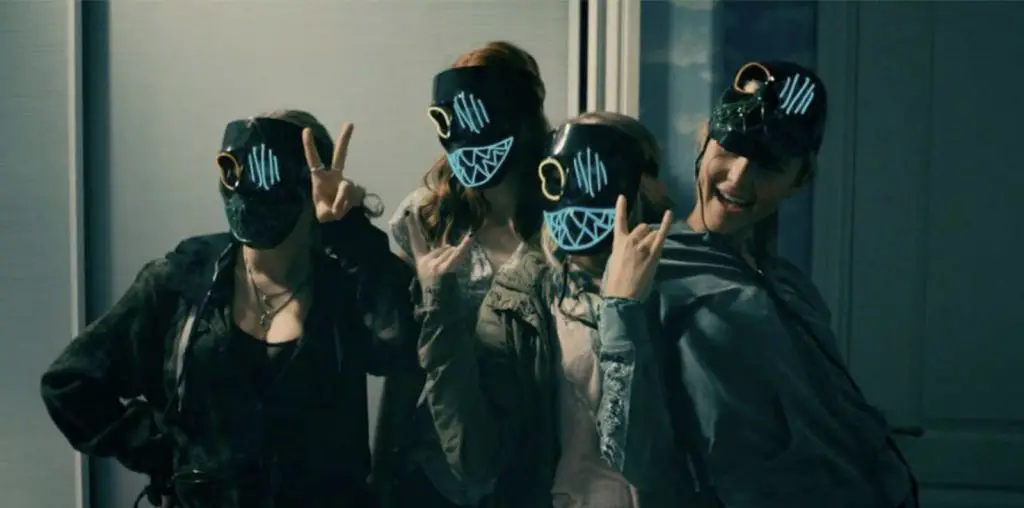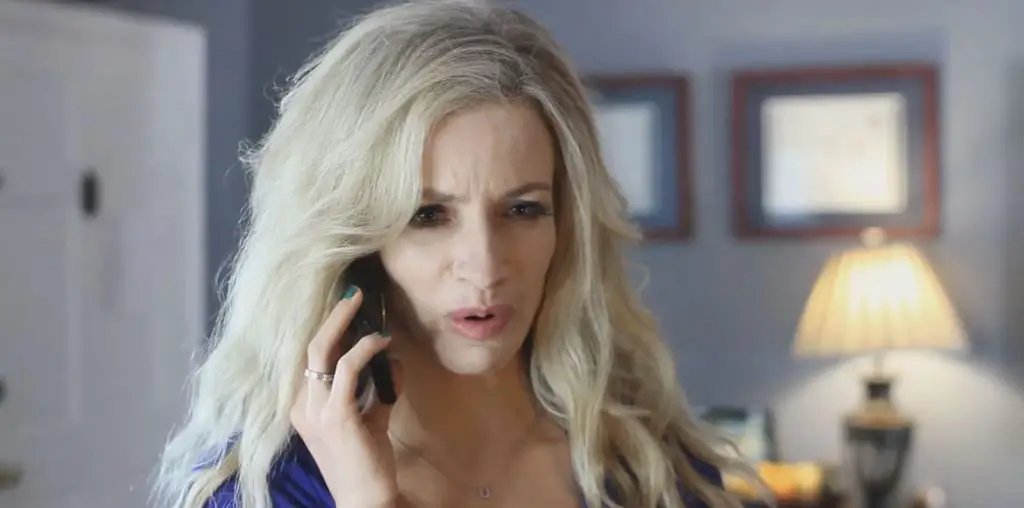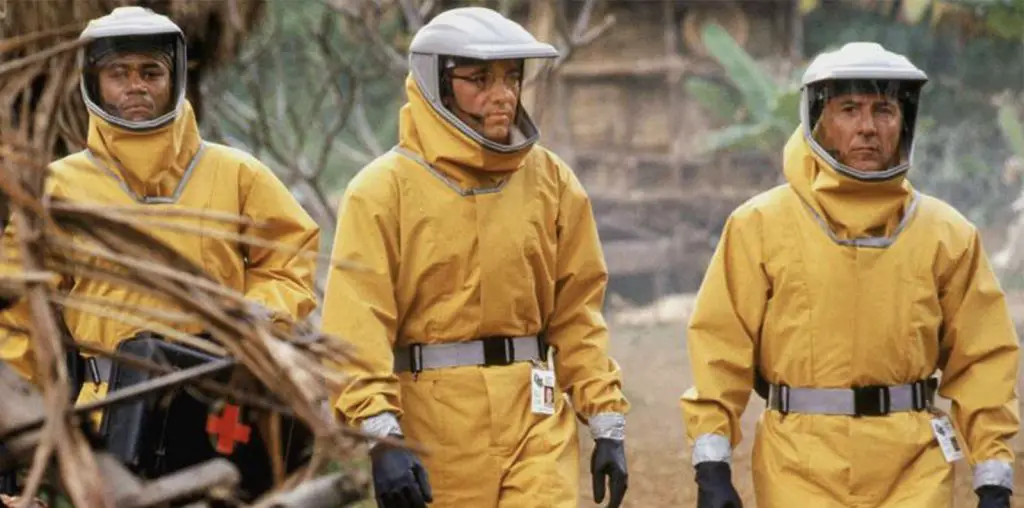
The setup of Darkness in Tenement 45 may seem a tad prescient: a group of people is forced into a confined space with diminishing supplies as a hostile biological force outside threatens their very existence. Though it was filmed before the pandemic, the parallels to life in 2020 could not hit closer to the marrow.
I was on a podcast recently, where we spoke about horror films that reflect the collective societal fears of the time. We postulated what types of tales will be spun decades from now when we are long past this viral nightmare. Even though we had yet to face it when it was filmed, the talent behind Darkness in Tenement 45 nailed all the COVID-induced crises with eerie precision. Masking up before heading outside, the need for basic supplies such as toilet paper, feeling like a caged animal, trying to subvert a cough not to induce panic; it all feels startlingly on-the-nose despite this being filmed a year before the outbreak.
Set in 1953 after an attack from the Soviet Union, a diverse group of tenement-dwelling New Yorkers grapples with the challenges of survival and the fears of what awaits them outside.
Headstrong teen Joanna (Nicole Tompkins) is under the care of her tyrannical Aunt Martha (Casey Kramer) after the young woman suffered a violent event only referred to as “the darkness.” A Russian chemical threat has caused all within their apartment complex to quarantine themselves and board up all windows to keep out “the infection.”
Residents occasionally suit up to venture outside, and while the group all await their return, Martha ultimately declares herself the leader.
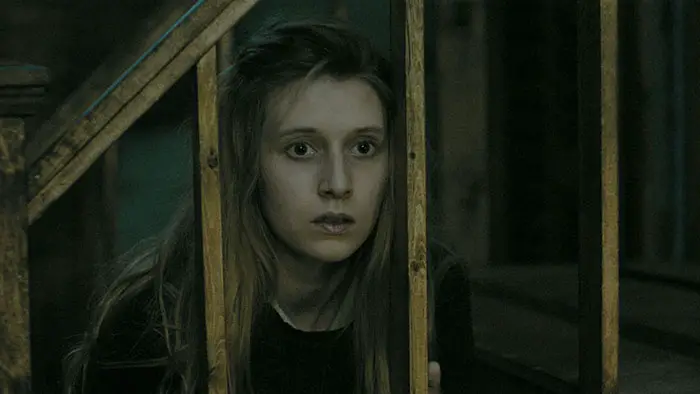
“…forced into a confined space with diminishing supplies as a hostile biological force outside…”
We join them after a month, as rations run low and tensions between them run high. Martha’s “law-and-order” style of governing grows more oppressive, which causes the youth within the building to begin plotting ways to usurp power and possibly venture beyond the walls of the building to see if life on the other side is indeed as dangerous as Martha purports. The only issue is that as determined and willing as Joanna is, she is plagued with disturbing visions that lead to violent outbursts demonstrating that her mental stability may not be on the most solid footing.
Immersed in a sickly green filter, the world writer/director Nicole Groton creates adds a dystopian hue to its 50s-era setting. Additionally, the film creates a disturbing of-the-era soundtrack, with just the slightest dreamy distortion, further punctuating the hellish isolation.
The film is revelatory for its ability to craft so much atmosphere with a limited budget and is aided further by a strong cast of mostly unknown actors throughout. Tompkins, in particular, shoulders much of the movie and is required to dance along the edge of sanity throughout while remaining a sympathetic lead. She echoes a young Amy Adams with her ability to encompass such a dramatic spectrum throughout.
In the year 2020, it should not be noteworthy. Still, I feel compelled to mention that the production team behind Darkness in Tenement 45 is all-female, demonstrating that men do not hold a monopoly in crafting bold, disturbing, intelligent genre features.
Packing isolation, mental health, and the sinister instincts of authoritarianism into a visionary feature, Darkness in Tenement 45 not only taps into our current COVID-coated reality but shows that innovation can not only survive but thrive in even the darkest of days.
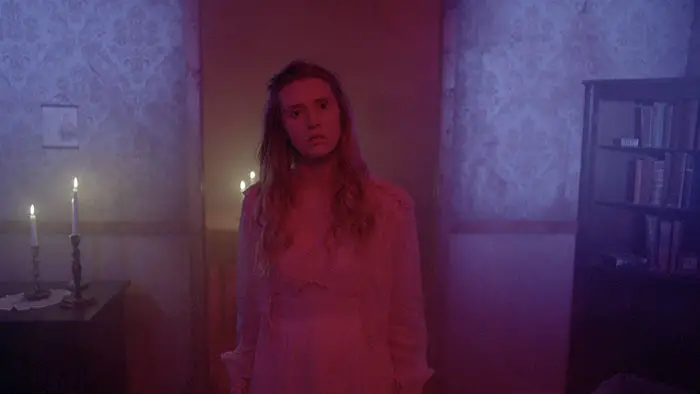
"…feels startlingly on-the-nose despite this being filmed a year before the outbreak."
